
Se stai cercando un modo naturale per migliorare la tua digestione, non cercare oltre il timo.
Questa erba aromatica è stata utilizzata per secoli per le sue proprietà mediche e gli studi hanno dimostrato che può avere un impatto positivo sulla digestione.
Uno dei modi più semplici per incorporare il timo nella tua dieta è bere il tè alle erbe.
Non solo il tè alle erbe di timo ha un gusto e un aroma piacevoli, ma può anche aiutare a lenire il mal di stomaco, ridurre il gonfiore e alleviare i sintomi di indigestione.
Ma non è tutto: il tè di timo è anche ricco di antiossidanti e composti anti-infiammatori che possono rafforzare il sistema immunitario e promuovere il benessere generale.
Quindi, se stai cercando un modo naturale e delizioso per migliorare la tua digestione, considera di aggiungere il tè di timo alla tua routine quotidiana.
Introduzione al timo e ai tè alle erbe
Il timo è un'erba aromatica che appartiene alla famiglia delle Lamiaceae, originaria del Mediterraneo.
Ha un aroma intenso e una fragranza fresca e viene utilizzato in cucina e in medicina per le sue proprietà antinfiammatorie, antimicrobiche e antiossidanti.
Il tè di timo è una bevanda calda preparata da foglie di timo fresche o essiccate immerse in acqua calda.
È una delle bevande alle erbe più antiche e popolari al mondo, utilizzata per trattare una vasta gamma di disturbi, tra cui mal di testa, nausea, tosse e raffreddore.
I benefici del timo per la digestione
Il timo è stato tradizionalmente utilizzato come rimedio per problemi digestivi come indigestione, flatulenza, gonfiore e nausea.
Gli studi hanno dimostrato che il timo può aiutare a migliorare la digestione in diversi modi.
In primo luogo, il timo contiene composti antispasmodici che possono aiutare a rilassare i muscoli dell'intestino e prevenire i crampi addominali.
In secondo luogo, il timo ha proprietà carminative, che significa che può aiutare a ridurre la produzione di gas nell'intestino e prevenire il gonfiore.
Infine, il timo contiene composti che stimolano la produzione di bile, un liquido che aiuta a digerire i grassi e le sostanze nutritive nel cibo.
Come il timo aiuta a combattere il gonfiore e i gas
Il gonfiore e i gas sono sintomi comuni di problemi digestivi come indigestione e sindrome dell'intestino irritabile.
Il timo è stato dimostrato di essere efficace nel ridurre questi sintomi grazie alle sue proprietà antispasmodiche e carminative.
Gli oli essenziali contenuti nel timo possono aiutare a rilassare i muscoli intestinali, prevenendo così il gonfiore e i gas.
Inoltre, il timo può aiutare a prevenire la produzione di gas nell'intestino, riducendo così la flatulenza.
Timo come anti-infiammatorio naturale
L'infiammazione è una risposta naturale del corpo a lesioni, infezioni e malattie.
Tuttavia, l'infiammazione cronica può causare danni ai tessuti e contribuire allo sviluppo di malattie come artrite, malattie cardiache e cancro.
Il timo contiene composti anti-infiammatori come il carvacolo e il timolo che possono aiutare a ridurre l'infiammazione nel corpo.
Questi composti agiscono impedendo la produzione di sostanze che causano l'infiammazione, riducendo così il dolore e la sensazione di gonfiore.
Proprietà antimicrobiche del timo
Il timo è stato tradizionalmente utilizzato per trattare infezioni batteriche e fungine grazie alle sue proprietà antimicrobiche.
Gli oli essenziali contenuti nel timo possono aiutare a distruggere i batteri nocivi nel corpo, prevenendo così l'infezione.
Inoltre, il timo contiene composti antifungini che possono aiutare a prevenire infezioni fungine come la candida.
I benefici del consumo di tè alle erbe per la digestione
Il tè alle erbe è stato utilizzato per secoli per trattare problemi digestivi e promuovere la salute generale.
A differenza del tè tradizionale, il tè alle erbe non contiene caffeina ed è preparato con erbe e spezie naturali.
Le erbe e le spezie contenute nel tè alle erbe possono aiutare a lenire il mal di stomaco, ridurre il gonfiore e migliorare la digestione.
Inoltre, il tè alle erbe è ricco di antiossidanti e composti anti-infiammatori che possono proteggere il corpo dai danni dei radicali liberi e promuovere la salute generale.
Tipi diversi di tè alle erbe di timo e i loro benefici
Il tè alle erbe di timo può essere preparato con foglie di timo fresche o essiccate e può essere arricchito con altre erbe e spezie come la menta, il limone e la cannella.
La menta può aiutare a lenire il mal di stomaco, mentre il limone può aiutare a combattere le infezioni e promuovere la disintossicazione.
La cannella può aiutare a ridurre l'infiammazione e regolare i livelli di zucchero nel sangue.
Insieme al timo, queste erbe e spezie possono creare un tè alle erbe delizioso e benefico per la salute.
Come preparare il tè alle erbe di timo a casa
Il tè alle erbe di timo è facile da preparare a casa con foglie di timo fresche o essiccate e acqua calda.
Per preparare il tè, basta aggiungere una manciata di foglie di timo in una tazza e versare acqua calda sopra di esse.
Lasciare in infusione per circa 5-10 minuti, quindi filtrare le foglie di timo prima di bere. Il tè di timo può essere dolcificato con miele o zucchero di canna per un sapore più dolce.
Altre erbe e spezie che promuovono la digestione
Oltre al timo, ci sono molte altre erbe e spezie che possono aiutare a migliorare la digestione.
La menta può aiutare a ridurre il gonfiore e il mal di stomaco, mentre la radice di zenzero può aiutare a prevenire la nausea e il vomito.
La curcuma è un potente anti-infiammatorio che può aiutare a ridurre l'infiammazione nell'intestino.
La cannella può aiutare a regolare i livelli di zucchero nel sangue e migliorare la digestione dei carboidrati.
Conclusioni
Il timo è un'erba aromatica versatile che può essere utilizzata in cucina e in medicina per migliorare la digestione e promuovere la salute generale.
Il tè alle erbe di timo è un modo delizioso e naturale per ottenere i benefici del timo e di altre erbe e spezie benefiche per la digestione.
Aggiungere il tè di timo alla tua routine quotidiana può aiutare a lenire il mal di stomaco, ridurre il gonfiore e migliorare la digestione.
Quindi, se stai cercando un modo naturale per migliorare la tua salute digestiva, prova il tè di timo e altre bevande alle erbe.


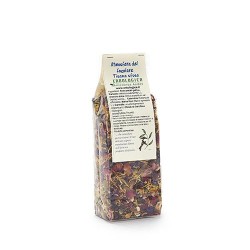

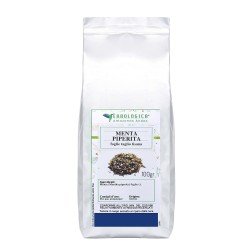
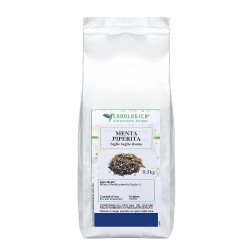
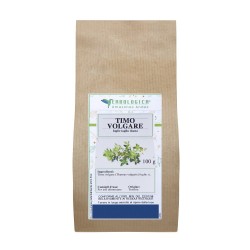
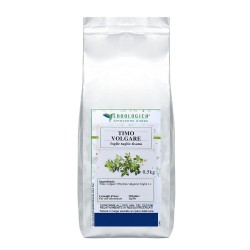
-250x250.jpg)
